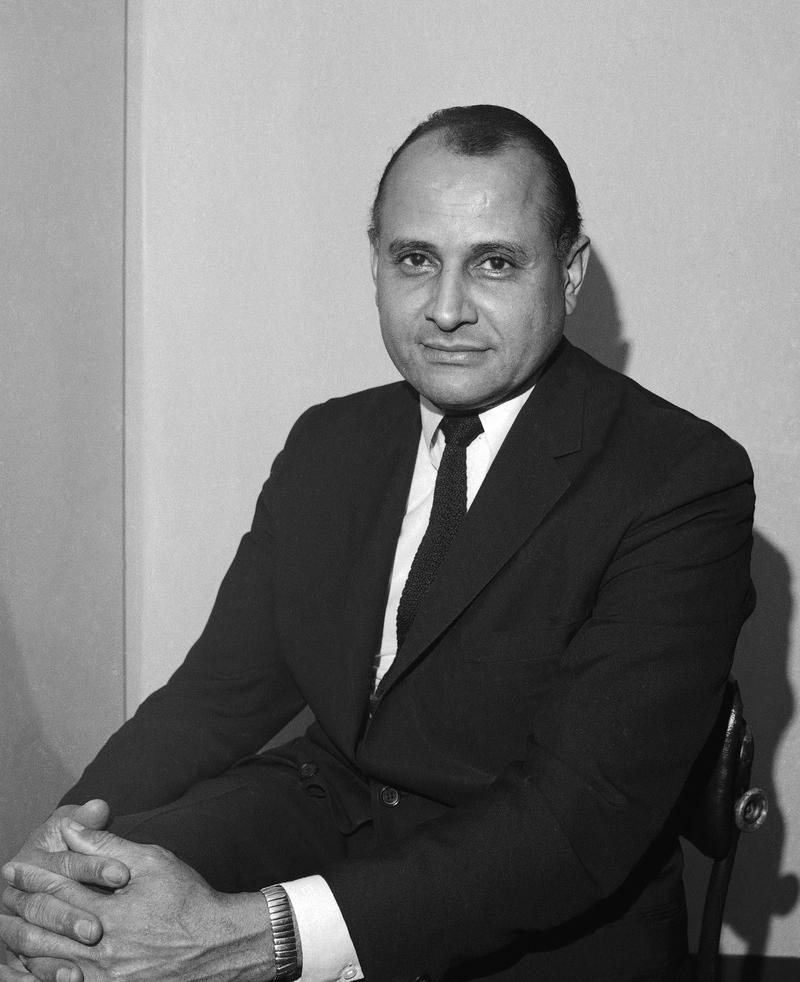 NYPR Archives & Preservation
NYPR Archives & Preservation
Percy Sutton: The Coming Population Explosion

50 years ago today, Planned Parenthood organized its first conference on family planning at the now-defunct Commodore Hotel in New York City, near Grand Central station. Titled "Family Planning in New York City: Change and Challenge," it featured speakers culled from health and social-service leaders within Mayor Lindsay's administration. These included Health Commissioner O'Rourke, as well as high-ranking officials from the Human Resources Administration and the Board of Education.
Family planning had a long history in the city: Margaret Sanger started her controversial first clinic in Brooklyn in 1916, a clinic which then, first as the American Birth Control League in 1921 and then in 1942 as Planned Parenthood Federation of America, became the core of the only national birth-control organization in the U.S. until the 1960s. It is no surprise, then, that the reports from city officials give a cumulative sense of a city fully committed to a progressive approach to family planning (and its always controversial sister issue, abortion): several programs are described, its successes are recounted, the challenges ahead are pointed out —all in the convivial, slightly stilted language of bureaucrats accustomed to public speaking.
Then comes Manhattan Borough President Percy E. Sutton. Less than two years at his post, but already loaded with plenty of experience in the legal, civil-rights, and political arenas, "the chairman" brings his legendary smooth diction to point out some uncomfortable challenges in the field. A keen persuader, Sutton would be the highest-ranking elected black official for more than a decade, and here you can hear why: here is a man utterly at ease in front of a crowd, and a man also unafraid to speak his mind.
Significantly, Sutton had also introduced an abortion bill in 1966, seven years before the Roe v. Wade decision. Although the bill was defeated, it has been hailed as groundbreaking for its time, and has been said to inspire New York's progressive stance on the issue (at least until recently). More broadly, Sutton continued to show interest in family planning, and in his speech he outlines his reasons for having been supportive of the issue: at its most basic, he predicts that the population explosion will be as destructive as a nuclear explosion.
But it is the subtleties in his delivery that set Sutton apart in the proceedings. After a series of well-meaning reports from city officials, all of which tend to sound "top-down," he suggests keeping one's ear to the ground in the communities most likely to suffer from the ill effects of an unplanned population increase. To that end he quotes an off-the-cuff remark by civil rights leader Fannie Lou Hamer. Imitating Ms. Hamer's Sunflower County, Mississippi cadence, he retells her disdainful comment:
Huh! White folks talkin' about family planning...
When they had that cotton to chop,
when they had that corn to hold
they said, "Children, have fun
—have a lot of children!"
Now we talk about voting:
they talk about family planning.
Sutton uses this remarkable quote to respectfully —but not without bristle— tell the audience about attitudes that may harm the progress of family-planning programs. (He also cannot resist to note that Fannie Lou Hamer is much more eloquent than Mississippi senator James Eastland, a known supporter of racial segregation) But somehow, by presenting possibly dissenting views, Sutton does not sound any less convinced: he merely seems to be warning the surrounding policymakers of possible setbacks, and above all asking them to be inclusive: to listen. It is an attitude that served him well in his long career in the public service.